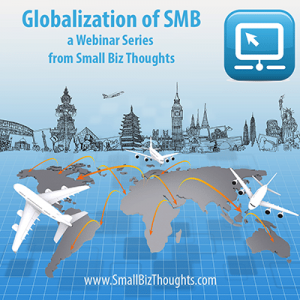
The Globalization of SMB
The world is getting smaller and we’re all more connected than ever before. How does this affect Small and Medium businesses (SMB’s), IT Consultants, IT Service Providers and Managed Service Providers and what are the opportunities you can take?
In the webinar, Karl and I addressed many of the aspects of the globalization of SMB — including working across borders and time zones — and based on our experience working with partners all across the world, we offered practical advice on how your business can benefit from globalization.
Watch the Webinar
Transcript of Interview
Karl Palachuk: Welcome to the Globalization of SMB Webinar Series. I have a very, very special guest today, Mr. Richard Tubb from tubblog.co.uk. Welcome, sir.
Richard Tubb: Thank you for having me.
Karl Palachuk: Let me take care of a little housekeeping here. What we’re going to do is have a nice chat with Richard. First let me tell about what we’re up to here. This blog series started in December with Mr. Harry Brelsford who was one of the first people that I know of in the SMB space. We were traveling around the world and begin opening up some other markets and viewpoints for the rest of us. We had Robert Crane from Australia, Ken Edwards who has built a business space on some really cool outsourcing stuff in China and then Dave Seibert talked about some of the challenges of working across many, many borders.
Coming up we have Veejay Mayapati who is from New Zealand right now but has started business on three different continents and intentionally moved to New Zealand to set up a business. He moved there from South Africa. Obviously with that name he’s Indian not South African. He’s got a really cool story about intentionally going someplace to take advantage of the economy.
We got some folks from Techsoup talking about how they’re helping non-profit agencies around the globe. Then my friend Todd Lace can be with us around July talking about hiring and managing employees in other countries.
In terms of what I got going I would really appreciate it if everybody could join me for the online course that just finished; we finished our first hour two minutes before this podcast and that is “Managing the Service Port.” That’s a five-week course so you could jump in now and you get to record it from week one and then you could join us live for weeks two, three, four and five.
I’m going to be live at the ChannelPro SMB forum in San Jose next week. I’ll be live in Las Vegas the week after that for the Business Solutions Retail IT VAR of the Future Program where I’m a keynote speaker. Then we have the SMB Online Conference coming up in June and that is 15- hours of education for one logo price. With all of these you could just go to smallbizthoughts.com and click to sign up for my newsletter and you’ll hear about all of those things.
I always like to do some kind of a little book note and this time it’s really a series not just a single book. There is a book called Kiss, Bow or Shake Hands. It was so popular that now they have focused versions for different parts of the world. In addition to sort of a general overview, which is the one I would recommend you start with, they have versions for specific areas that you might want to do business with. The book in general is pretty good about cultural overviews and sort of how do you make sure that you don’t blunder when you do certain things. It’s funny I just was teaching this class and talking about the different ways that we use “scheduled.” The term “scheduled” as a status in your service board may not be what somebody would use in another country. For example Richard might say that it was “diarized”, correct?
Richard Tubb: Yes, very good.
Karl Palachuk: Different areas use different terms and so they… Anyway this is just kind of a book that’s worth looking at. It is also available as an audio book, or Kindle and so forth. If you don’t want to get the paperback you have other ways of consuming it.
Our guest today is Mr. Richard Tubb who was one of the great bloggers in our space. He is a former Managed Service Provider owner. He sold that off and now he is a coach and a speaker and he runs around the world educating people on many services. Welcome, Sir. The first question I have to ask you is do you actually live in a castle?
Richard Tubb: That’s such an American question; I’ve got to say, Karl, with absolutely no offense. I’ve been asked that so many times by people but the area I live in is called Weoley Castle and we have actually got a castle. I don’t live in it myself but it’s only five minutes away from where I am. If you got a picture of what Europe’s like where the history’s from, yes, we’ve got castles everywhere and I’ve got a castle five minutes away from my house although I don’t live in it.
Karl Palachuk: You don’t live in THE castle but you live in an area that’s called the Weoley Castle.
Richard Tubb: We have a castle, yes.
Karl Palachuk: I have every intention of visiting you probably in November and you can take me to the castle down the road. How about that for a deal?
Richard Tubb: I look forward to it.
Karl Palachuk: That’s in West Midlands. Give us a geography lesson. Why is it called West Midlands versus whatever else? What’s it in the middle of?
Richard Tubb: East Midlands. Birmingham is central England, the heart of England. It’s slap-banged in the center of England. The West Midlands is the second biggest area in the UK. You think of London, Birmingham, where I live is the second city and then you got Manchester a little bit further North which is nearby to Liverpool which people would be familiar with because of The Beatles. I’m closer to Stratford-upon-Avon which is also in the Midlands or Staffordshire I should say, just south of here. Of course, Stratford-upon-Avon is famous for Mr. Shakespeare.
Karl Palachuk: Exactly. All right, I’m going to come back to your screen but let me just let you tell us about where you’re going to be in the coming weeks I guess.
Richard Tubb: Yes, absolutely. Well, it’s interesting we’re talking about the globalization of IT so I’m visiting some of the major cities over the next few weeks. I’m joining my friends at StorageCraft for their user group where I’ll be delivering a presentation there. That’s in London on May the 14th so if there’s any UK-based MSPs around the call today who would like to join us, please feel free. You can register there; whether you’re StorageCraft customer or not. Feel free to drop me a line if you want to I get an invite to that. I look forward to seeing you there. Then I’m flying across to Stockholm in Sweden to join Upstream who are one of the major distributors in that part of the world. I’m speaking to a group of Nordic MSPs and that’s on May the 21st. I know that you and I, in our respective blogs, we get a lot of readers from Europe so if there are any readers or listeners from Sweden or the Nordic area who want to join me on May the 21st in Sweden. You’ve very kindly given a shout out there link to my full-event calendar. If you would like to catch up on me at any of the event I’m attending or speaking at over the next twelve months you could find the full-event calendar on tubblog.com.uk.
Karl Palachuk: Excellent! I just want to give people a background so they have a sense of who you are and what you do before we get in to the big conversation. You have an eBook, several eBooks, but this is your most recent one I believe.
Richard Tubb: My day to day work sees me working with IT business owners, service providers and MSPs. Probably the most common challenge that I see MSPs come in across is that they just feel overwhelmed with the amount of things that they have to do. In fact I’d go as far to say that many MSPs who get in touch with me unfortunately, they’re almost drowning under the pressure of running an IT business. There are many people on the call will empathize with that. Unfortunately, it’s impossible for me to do one on work with all of them so I really just did a brain dump of everything that I learned over the years. Some of which we will touch upon in this call I’m sure. I’m really learning to survive as an IT business owner. The techniques, the skills, and the tools that you can use to actually make sure you get out on top there and start being in control of the business instead of the business being in control of you. The IT Business Owners’ Survival Guide, very shortly, if you want to get any of the list, listen to the goals that they want to, get hold of the free chapter on that. They can go to itbusinesssurvivalguide.com and they’ll get a free chapter and be notified when the book becomes available.
Karl Palachuk: Very good. I’m going to take us through the slides as we have our conversation. One of the things that struck me when you put across your calendar is when I have something in another country, when I want to go into the UK or I’m going to Australia or New Zealand, that’s a pretty big deal for me. To be honest, because of where I’m located, even Canada is a bit of a big deal. Vancouver is a three-hour flight north from here and Toronto is literally three thousand miles away. It’s a big deal for me to be appearing in a different country. It doesn’t seem to be that big of a deal, obviously Europe is much smaller, but do you find that the folks that you work with travel as much as you do?
Richard Tubb: I think there’s probably less travel in Europe it’s fair to say. The number of events that I do in mainland Europe as opposed to the UK, not so often, if I do one or two in a year, that might be it. Whereas traveling around the UK, the UK tends to be very London-centric, so most of the events, most of the conferences and events tend to be in London. That’s changing. The UK itself is a big place, you got Scotland, you got Ireland, and you got Wales in there. There are more events cropping up here in different geographical locations but for the most part it just tends to be quite London-centric. I know that even European-based events, in other words events that are targeting not only UK MSPs but are targeting MSPs from all over Europe and even further afield than that. They tend to be London-based as well. I guess it’s an easy location for most people to get to being the hub with lots of airports there. I’d like to see a little bit more distribution of events outside of London. I think there’s a lot of big part of the UK that I’d like to see MSPs explore.
Karl Palachuk: Right. Then you ask we have this issue where someone like Microsoft or Intel for example, they would put on a tour and across they will go to Seattle. They may or may not go to Portland because they think people from Portland may just go to Seattle. They’re never going to Tacoma which is in between the two of them. They’ll go to the Bay Area but not to Sacramento even though we get more people at their events than the people in the Bay Area do just because the people here show up more. There’s sort of this sense that there’s first-tier cities, London’s the only first-tier city that they seem to be aware of in the UK.
Richard Tubb: London itself is… The size of London as a city, it’s almost a country in itself. Obviously you got Birmingham the second city that I mentioned there, you got Dublin, you got Newcastle up in the northeast but everything just tends to be centralized around London. The vendors are missing a big treat because although London is densely populated and there are literally hundreds of thousands of MSPs in central London alone. There are so many more thriving really, really good-sized MSPs further afield so I encourage any vendors to get out there on the road. One of the things that strike me is, perhaps we’ll touch it in our conversation call, and the globalization of SMB, social media, the world is getting a smaller place. It’s easier to do business with someone without meeting them face to face; to do business remotely from the other sides of the world. There is no substitute for face to face contact. I was speaking to a large MSP vendor in the US, they were saying they’re opening offices scattered all across the US specifically because having feet on the ground local enables them to build a much better relationship with people. It comes out that people do business with people they like and there’s no better way to build trust and like than getting to know people in person.
Karl Palachuk: Right, now I haven’t kind of think but I don’t believe I had any coaching clients in the UK. I know my brother Manuel, you and I get together when we can to do a little Skype call, we’re overdue, but he’s had clients in the UK and I know you’ve had clients in the US. Is that much different doing a Skype call in real time to somebody in New York versus somebody in the UK?
Richard Tubb: There’s the obvious logistical problem trying to get the world clock, the calendars match the different time zones, but quite apart from that it is interesting the cultural difference. Although I have to work with US-based MSPs, it has really been interesting the US-based MSP when they approached me, my first instinct is to say, “I’m happy to work with you but have you thought of working with someone more local to you, you know Karl, Manuel, or others in our industry.” Sometimes the US MSPs will say to me, “Yes, actually we prefer to work with you because we like your style; we like the European way of doing things and we want to learn a little bit more about that.” I’m happy to work with people from that perspective but there are a lot of cultural differences. The way things are done in different geographic locations, pricing of course is an interesting one – the culture of pricing. In fact I was just having a conversation with somebody just the other day we were talking about the adoption of software as a service in different parts of the world. Although, SharePoint, Office 365, Google Apps and things is taking off as much in the UK as in the other parts of the world, here in the UK, historically and predominantly, there’s a culture of ownership. A of lot of MSPs I speak to, when they go out and talk to small businesses about replacing their server with something hosted in the Cloud, there’s a little bit more reluctance because in the culture in the UK is one of ownership. Business owners still like to think they’ve got something tangible that they own. I’ll be interested in your thoughts on this Karl but when I speak to US-based MSPs, that culture of ownership perhaps isn’t as strong over there. I’m interested in probably why services like the Zipcar and Uber and those other servers that seem to take off in the US, not to say they don’t take off in the UK, but they seem to struggle a little bit more. People tend to want their own cars than rent them and things like that. I’ll actually be interested to see if you agree with that and if that is the predominant culture.
Karl Palachuk: I’ve not thought about the fact that services like Uber and Zipcar are somehow related, but I think that you might be right that there’s kind of this attitude and outlook. I mean most people do not use Uber, most people don’t use Zipcar. I’ve got a former employee, my former marketing guy. He is always going to Zipcars; he loves to be able to take the train into downtown and then he will go to one of these cars and for folks who haven’t heard of it, with the Zipcar you basically pay by the hour, you sign up for the service. When you go there you take a car and it includes the price of gas and the price of insurance. You’re paying by the hour for a car, if you don’t want to add miles to your own car or deal with all the insurance crap in case you get into an accident when you’re driving out of town, you can use a Zipcar and you take it up to the town that’s an hour away instead of using your own car or if you don’t have a car at all. Those kinds of things are kind of… I think you have to be willing to accept that somebody have figured out all the details on that. Americans are very conscious of being sued and everybody wants to make money by suing somebody, right? We want to make sure that stuff, we want to have the confidence that that’s been taken care of. If we feel it is, we’re willing to give it a try. If the price is right and you make it convenient enough then it’s worthwhile. I think in terms of owning servers and whatever there are two groups. The distribution isn’t normal. It’s got a lump and then another lump on the other side. The one lump is people who absolutely want to own their own stuff and they don’t know why they will ever not own their own stuff. These are people who don’t sign leases; they just buy their servers. There are people who say, “Look, I don’t care. It’s blah-blah-blah technology and as long as it works, I don’t care. If something goes wrong, I’m calling Richard. I am not calling Microsoft. I’m not calling HP. I’m not calling Dell. I’m not calling Symantec. I’m calling Richard. If you make my stuff work in the cloud, great; if you make my stuff break in the Cloud then we got a problem.” I think we have a fair number of people who sort of take that attitude. That may mean more mature businesses as well.
Richard Tubb: Yes, it could be. I think you hit the nail on the head when you say it’s about the type of business owner it traps. Here in the UK, one of my clients is a Google Apps reseller which is a completely different model to the traditional MSP model of selling things. They don’t really sell anything but they don’t make much margin on the selling of Google Apps at all. They sell the services on top of it. The type of clients that they work with tend to be young businesses, start up creative businesses of that nature specifically because the owners of those businesses tend to be younger people who have grown up never knowing a server in the corner. They’ve used Facebook, they’ve used Google, Amazon, all these things. The thought of absolutely owning the piece of thing that sits in the corner and does these things, “Well, that’s not my problem Jack. I don’t want to know about that I just want to get the service up and running.” I think you’re absolutely right when you said it’s down to the mindset of business owners as opposed to categorizing in many specific ways.
Karl Palachuk: Do you think that there are more small business owners in the UK as a percentage of the people that you deal with?
Richard Tubb: I think this is a global thing but I’ve seen the growing trend of small businesses surrounded by clusters of freelancers. I count myself in that category, Karl. I work essentially as a business coach, I write a lot of contents and do business consultancy with people. I work with a small number of MSPs, eight at the moment. They are part of an extended team, there’s an adviser, there’s a policy check for them. I’m seeing this rise of freelancers. Instead of taking employees on, with all the pains that you and I have employed people in the past that can be a double-edged sword. It could be pain at times. Why take people on if you can hire actual real experts in that field to come in and to do work with you? You may keep them on retainer you may not. There’s a growing rise of small businesses who are thinking, “I don’t need to take people on. I’m going to outsource this work. I’m going to build relationships with people who are experts.” If I give an example within my own business, I’ve got a need, if I give one real bried example with my podcast, I could sit there and listen to the podcast and transcribe it; but I outsource it to a lady in the Philippines who does phenomenal work transcribing my podcast in half the time it would take me…
Karl Palachuk: Oh right.
Richard Tubb: …at a quarter of the cost. I’ve also surrounded myself with experts, John Brown at Rogue Productions who looks in the production and the editing of my videos and my podcasts. My expertise is to turn up and to interview people to ask the right questions. Although I know a little bit of how to do video editing or podcast editing and I could probably get by… it’s not the best use of my time so I outsource those to other people. I’m probably fairly typical of a small business in the UK, a small number of employees but they surround themselves with experts who do various bits and pieces much better than any full-time employee could. Interestingly for any MSP that’s listening that essentially what we, and I say that as a former MSP earner myself, what we are telling our clients to do, I say, “You could hire a full-time IT person but that person is going to have to be a jack-of-all trades. They’re not getting to have the depth of knowledge that we’ve got. You’re going to have to pay those holidays, for sick time, you’re going to have to manage that person.” Why not outsource it to us? You won’t have to worry about managing us; we’re really good at managing ourselves. You won’t have to worry about people being off sick, holidays we’ve just got it covered. I’m sort of surprised MSPs don’t adopt that model themselves a little bit more and surround themselves with experts who they could outsource and delegate these types of works.
Karl Palachuk: It’s interesting. Sometimes we don’t think of it as outsourcing, even though that’s exactly what it is. I was just talking to some folks from Plan 27 which is a marketing group and they will take over the management of your Google Ad campaign. Is that…Am I buying a service just flat out or am I outsourcing something I could be doing myself? If I go to Plan 27 and say, “I want my managerial business to focus on Sacramento County in these key words and whatever,” it really is outsourcing something that I am currently doing but I don’t necessarily think of it in those terms. I think of it as I’m going to buy a service that does this for me. The two almost mesh, it’s invisible to us that that’s what we’re doing but in fact it’s what we’re doing. You know what I mean?
Richard Tubb: I do, indeed. It is interesting, isn’t it because it isn’t a modern phenomenon? I encourage the MSPs that I work with to focus in what they’re good it and to build up strategic alliances with other IT companies that provide complementary services. For instance, lots of the MSPs on the line would probably be familiar with client approaching them saying, “Hey, can you put together a website for us?” You can. It’s possible to do; we’ve all got knowledge of IT as MSPs. We could put together a website. Is that the best use of your time? Are you an expert in it or is there somebody else that you can partner with to deliver that service and the SEO that goes with it and all the other services that Google Ad and everything else that needs expertise? I am firmly in the count that says MSP you focus on whole competencies. You surround yourself with people who can deliver services to your client much more efficiently with much more expertise than you can. I’m also a fan of taking that idea to your own business as well. We think of outsourcing a work on behalf of our clients, why not outsource your own MSP website to another company? Why not outsource the SEO? Why not outsource or delegate any of these services? As I was saying this isn’t a modern phenomenon and I was listening to Andy and our friend, Robert Crane, across in Australia when he was talking to you about some of these globalization topics. He mentioned a book that Robert and I are huge fans of – 4-Hour Work Week by Tim Ferriss. That really brought this idea of reducing the amount of work that you do and outsourcing and delegating so the general public is conscious that it’s been around for ages. It’s been many, many years since I’ve been an MSP owner. Even way back in the day though, I used to outsource stuff such as telephone call answering, work flow, some email management. My own MSP’s business website was outsourced to Derick Brown, across at Toronto Marketing, who does a phenomenal job across there in Thailand managing many MSP business owners’ website. If this isn’t a new phenomenon, and again, I’m so surprised that more MSPs happen they can answer that but they can go to other places in the world. They can get better quality of service for a lot less costly than they can everything they can create themselves.
Karl Palachuk: Even services, like one of the people I really talked to in a few months, they do outsourced management of your accounting and their employees are all over the place. It’s sort of like getting your podcast transcribed. There’s a whole world of people out there willing to do this and sometimes I’m shocked at how fast they are and how good they are. A lot of these people… Sometimes in the US anyway, we think that people who are low paid have lower skills but a lot of these people in other countries, their culture is such that they’re extremely educated, some of them even got Master’s Degrees and they’re working for what we considered to be extremely low wages, but in their country they’re probably living high on the hog.
Richard Tubb: Yes, one of my favorite whom I haven’t heard in recent times was a chap called Chris Tucker who runs a Virtual Assistant company I believe it’s based there in the Philippines and he was saying the work ethic of people there is incredibly high. The skill level is incredibly high. It’s just that the financial situation there is completely different to the US, the UK, or Australia. You can live like a king over there for so much less than you can do here. That’s how they’re able to offer their services as Virtual Assistant, for instance in the Philippines and places like that for so much more. For me it’s a no brainer. If the quality of service is there, if the communication is there and if it costs way less, why wouldn’t you use it? There are some caveats on that I think you know what you and I both in our MSP days used to use to outsource service. At the time I used to use the Knock Services which was located in India and thought incredibly highly of the technicians there and the work that I did. Would I be comfortable with those same technicians speaking directly to my customers with similar communication issues that you come can across? Not so much there but there are jobs that can be outsourced and you can manage the whole process without the client ever knowing. The upshot is the client gets much better service than if you try to get the work yourself. Your profit margin should be much higher.
Karl Palachuk: One of the things that I learned with, now it’s Continuum but it used to Zenith Infotech, is to be extremely precise about giving directions. If you say open port or whatever, 45, 45 on this firewall and point it to this IP address, they will be able to do that but it’s much more important for me to say, “Use this username and this password to connect to the server and then you can only get to the firewall to get to the inside and then use this address use the name and password to connect to the firewall. First, backup the firewall configuration to the server hard drive at this location then open this port forward it to this IP address then save another copy of the firewall configurations so now I have a before and after copy.” I need to be very, very precise because I can’t assume in any way that they’re going to do it the way my company does. I really wouldn’t make those assumptions with a technician who’s sitting next to me but at least if they’re sitting next to me, they can say, “What did you want me to do with this?” When you have a time gap of ten hours, you want to get this work done then it’s a whole different animal.
Richard Tubb: It is. I think it’s a really powerful and important lesson in working with outsourcing, with delegation, with virtual assistant or whichever terminology you want to use for them because it really helps you to understand how am I going to explain the work that I need doing concisely but effectively to someone else. It can teach you to write better internal processes for your own staff as you mentioned there. Speaking to someone who’s birth language may not English, you’ve got to be really clear and you can’t use any local colloquialisms, you can’t use any slang or terminology like that. It’s interesting I’ve just picked out on the fact that Americans call Zeenith Infotech, I call it Zen-ith Infotech. I’m probably the one who was wrong back in the day, but interesting so if I’m talking to a client about Zenith Infotech they might look at me with my accent, my broad English accent and say, “What are you talking about?” It’s learning about those nuances that are really important. It’s a valuable lesson to learn. Because, if you learn how to delegate work effectively to someone at the other side of the world whose first language might not English, you’re going to get really, really good, really fast at delegating work to anybody anywhere in the world including the technician who sat across the desk from you. Very valuable, I think.
Karl Palachuk: That is certainly true. If anybody has any questions go ahead and put them into the question category on the webinar screen. We’ll be very happy to take those. Richard, one of the things that I know about you is I know you occasionally make your way to New York. I think that’s maybe a five-hour time difference, right?
Richard Tubb: Yes, I’m at rest for seven hours. I’ve five hours time difference, seven and half hour journey, yes.
Karl Palachuk: It is almost the same as going from one end of the United States to another. I have the same distance and time and so forth. Do you find that travel actually helps you with your business or it’s just out having a good time?
Richard Tubb: It incredibly helps. The old phrase “travel broadens the mind…” I put a lot of the success that I’ve experienced previously in MSP and now to the fact that I spend a lot of time in different parts of the world; learning of the best people in the industry who are hugely kind with their time, yourself included, and for me to show up and listen to basically and pick advice from. I spend a lot of time in the USA specifically understanding the growing MSP culture years and years ago. I think my first trip to the USA in the work was at the Microsoft Worldwide Partner Conference. It absolutely blew my mind. You’re suddenly exposed to not only the best people from that part of the world but the best people from everywhere in the world are getting together under one roof. The Worldwide Partner Conference is a real game changer for me. Just sucking up that knowledge and sucking up the idea of what is possible and taking that back to the UK. For me as an MSP owner attending that YIT conferences in the US and building that relationship with people learning from them and bringing all that knowledge back to the UK and applying it to my own business. Interestingly, I think you can replicate this experience by building relationships with experts in different parts of the world and staying in touch regularly. One was like a mastermind group, you’ve alluded to the fact that yourself and me and your brother Manny, we get in touch quite regularly for our coaches’ coaching course and about ideas. For myself I got plenty of other people I introduced, an Australian on what it takes to make a successful IT entrepreneur on my own podcast recently to work in both the US and Australia were some of the biggest places in MPS industry there. Someone else springs to mind I speak with Eric Dosal with BrightGauge down in Florida. Eric is my go-to guy on MSP metrics and key performance indicators. He worked with a ton of the most successful MSPs worldwide. I’ve already mentioned our mutual friend, Robert Crane, in Australia who’s a genuine top-shelf share point and Office 365 expert know everything there is to know about that. It’s one of the smartest people in the industry. He spots trends way ahead than the majority of us. You can be sure that I speak with Robert as often as I can, the guy’s a genius. These are all these experts that I speak to in different parts of the world. Some of which I’ve only met once or twice. We’ve built relationships by social media and by email but importantly, you then take the time to actually take those relationships to telephone, make it something more than social media and email. There’s huge amount of value to be gained from those relationships. Back in the day when I was in MSP, the relationships that I built with other MSPs in other parts of the world were massively invaluable. I can tell you as an MSP owner it always flabbergasts your clients’ small businesses in my part of the world, when they come to you and say things like, “Well, Richard, we’re opening a satellite office in New York. We’ve just acquired a business in Houston, Texas. You’re an IT guy, anything you can do to help?” I say, “Sure, let me introduce you to an IT company just down the road. If they don’t work out I have another two in that area.” The value that that brought to my clients was mind blowing. They’re like, “Wow, this guy knows everybody in the IT industry in the entire world.” No, I don’t actually. But I’m –
Karl Palachuk: But, as long as they think you do…
Richard Tubb: Exactly. Interestingly I just talked about Eric being an expert in MSP metrics, Eric Dosal at BrightGauge, Tim Brewer, Australian IT Entrepreneur, Robert Crane SharePoint Office 365, yourself and Manny on service delivery, these experts in different parts of the world, it doesn’t matter if they’re around the corner or not. You can set up Skype calls and pick their brains and get expertise remotely. As MSPs if you can’t find somebody who’s a SharePoint expert in your local area, look further afield in your country. Do a Google search, you will find, it doesn’t matter anywhere in the world they are. There are logistical challenges, of course, with time zones and things we’ve already talked about and local culture. Why restrict yourselves with expertise locally when you got this global stage and experts that you can go and learn from. I think it’s such a wonderful thing that I’ve been using for years and years and will continue to do so for as long as I live.
Karl Palachuk: The other thing that many people may not be aware of is that those of us who run IT Pro user groups talk to each other all over the world on Yahoo! Group. Anybody who wants to get connected to IT support pretty much anywhere we can help get people get connected. Do I know somebody in Perth who can help me with something? Maybe, maybe not but I know somebody who knows somebody, right? The whole six degrees of separation of the entire IT industry is available to us. That’s something that a lot of people don’t think about.
Richard Tubb: If anybody’s listening to this call feels over all, like, “how am I going to build a relationship with an Office 365 expert at the other side of the world?” Don’t worry about it. The very first step that you can take to be exposed to the wider IT community, the global IT community, is to get yourself down to your local user group. I wasn’t even aware there was such an event as the Microsoft Worldwide Partner Conference. Before I attended my local user group for the first time, I wasn’t even aware there’s this absolute genius called Karl Palachuk over in California who produced these wonderful books. When I was starting out as an MSP business owner. I went to my local user group, started asking the questions and people pointed me in the directions of your books and other resources like that. The longest journey starts with a single step it’s absolutely true. Get yourself down to your local user group. It would expose you to a wider community which could include experts on the other sides of the world, events and vendor’s tools that you’ll never be aware of if you’re trying to do it on your own.
Karl Palachuk: It’s interesting, back in the day when Harry was sort of first making his first forays into India, and was helping me to distribute my first book on documentation, he took some with him. I remembered he called me from India and he said, “What’s the cheapest you can sell this book for?” And I said, “I don’t know. Why, what’s the deal?” He said, “I think the going price in India,” and this was ten years ago, “would only be about a $1.50.” I said, “Wow, that’s cheaper than I’m willing to sell it for. I’d much rather you find a dumpster than to sell my book at that price because I don’t want to devalue the book.” Today, it’s actually better. One of the things that a lot of folks that you’re unaware of is, you can go to Wikipedia and can look up the consumer price index of every country in the world. It’s all a relative thing but these numbers that go from very high to very low. You look at something you say well, countries like the US and the UK obviously have a very high consumer price index compared to many of the countries even in Europe, in Africa, Central and South America, Asia, everybody’s got something that works that’s different for their country. Back to the question of outsourcing I don’t feel bad sending jobs to the Philippines because I’m not really sending jobs anywhere. In some ways what I’m doing is helping folks there improve their economy. In terms of the globalization, I love engaging people in the UK, South Africa, the Philippines, or India. I really feel like the dollar ties, the monetary ties that bring us together help us create world peace. I really honestly believe that. I think that the more that we help other countries see us as something that they need, the friendlier they’re going to be. We have seen such horrible things worldwide in the last 15 years. It’s just unbelievable. On the other hand, we’re seeing spectacular wonderful things as well. Look at all the people who are rushing to help in Nepal and we saw the same thing when there were earthquakes in other countries. The global peace of this is really spectacular. People can, anyone of us can play a role in that. You don’t have to sit and wait till somebody else to figure out how to make the world a better place. Anybody can participate in that. Whether we like it or not we’re part of this economy that is truly global in nature.
Richard Tubb: Yes, absolutely. I think from an ethical point of view, I doubt there’s any conflict at all. Outsourcing work in that way as you say expands not only your horizons. For me, it’s all about equal opportunity. If the best person to do the work for you, if the real expert is at the other side of the world, I got no challenge at all doing it. This is coming from somebody, I’ve got a very green head on me, and I’m tainted by local produce. I buy local for a lot of things but when it comes to skills, it’s a global market. I’m very comfortable buy local products but sourcing skills worldwide.
Karl Palachuk: My guess is that there are not much local bananas in the UK. It’s just a wild guess.
Richard Tubb: Not so much. Even with a castle.
Karl Palachuk: Now then, not in your castle. That’s true. The other thing is, when we think about this, you’ve travelled quite a bit more than most people I think in terms of the number of borders that you’ve crossed and the frequency of which you’ve done it, do you think that MSPs are missing the boat by not trying to figure out how they can make money with services in other countries or with partnerships in other countries?
Richard Tubb: Absolutely, yes. We’ve talked about the expertise that’s available globally and how easy it is to find people to do that work in such a high quality. One of the websites that I’ve used in the past is 99designs, where if you need a new logo design or something like that you can put it out there. I know you’re fan of the site as well but, Fiverr.com.
Karl Palachuk: Yes.
Richard Tubb: The amount of great quality things and some real innovative thinking that I found on Fiverr.com has been exceptional as well. Further than that just finding experts from different parts of the world, harnessing that expertise, delivering services to your clients, faster and to a higher quality and in most cases cheaper than you ever could if you try to do it all yourself. Absolutely I think MSP’s are missing your trick. I think it fundamentally comes down to the fact that MSPs are trying to be a jack-of-all-trades – trying to do everything themselves. I absolutely believe once you place orders or to limit the type of work that you do for clients, so if a client approaches and say, “Hey can you design my website?” You can say, “Actually no, that’s not what we do but let me introduce you to somebody who can do that for you,” or “Let us project-manage you doing that for someone else,” and so on and so forth. It makes so much sense, it frees up your time to do what you’re best at. Again getting back to what we’ve touched on earlier in the conversation, isn’t that essentially what MSPs, the primary benefit, is supplying MSPs that we work with? We tell them, “Hey, don’t bother messing around with internet cables, and don’t bother messing around installing PCs. You got better things to do. You want to run your own business. Let us help you with that.” I think overall I’d say for MSPs to listen to their own marketing message a little bit more and have a good hard look at what they’re doing within their business that perhaps they don’t need to be doing what they could outsource locally, globally whatever as long as they’re focusing on doing what they do best. What is the most effective use of their time in other words?
Karl Palachuk: You know it’s funny that really the focus is always on who the best person is for the job is and who can do the best job? Sometimes that’s just happens to be somebody in another country. I’ve had a kind of a humorous incident recently. You referred me to someone to help me do some formatting stuff for Kindle. We did a few projects with her and she was in the UK but she got so busy so she gave me a referral to somebody else. We did a few projects with that person and at some point that person connected with me on Facebook. I realized, wait a minute, the second person isn’t in the UK at all she’s in the United States, I didn’t even know that.
Richard Tubb: I’ve got another shock for you as well. The girl that I referred you to, she’s not in the UK; she is British but she lives in France. Isn’t that interesting, Karl, that you’re very, very savvy when it comes to these things. You didn’t notice because what is there to notice? Jill’s not speaking with a French accent when she speaks to you, she’s British but she happens to live in France. In the same way that I mentioned Derick at frontier marketing; they live in Thailand but Derick is an American a former director of Microsoft. What does it matter where they are in? When we talk about globalization it’s not just going to people in different parts of the world. It could be that you manage your business from different parts of the world as well. You’re not restricted. I remembered somebody saying to me years ago, “Go and explore the world Richard. Have mouse will travel.” It’s true, it’s absolutely true. I thought about spending a lot of time in the US learning of the best in the industry. I did that while running an MSP here in the UK. There are challenges that go with it. Really travel does broaden the horizon. You can do a lot of the management of businesses locally. Just as a side note, on my own podcast I’m going to release very soon, I’m speaking to a chap called Marc Gadsdon who is a Brit. He runs an ISP based in London but has technical support in Canada. Marc the business owner also lives in Andorra.
Karl Palachuk: Andorra?
Richard Tubb: Andorra an absolutely beautiful part of the world, fantastic place to live and work. His technical team is in Canada; he’s got staff in London and got clients all over the world. Just goes to show it doesn’t really matter where the people are, where the business owners are. You can serve in different time zones across the world. I won’t say with ease but a lot more flexibility than you ever could before.
Karl Palachuk: Right. I have a much smaller MSP business now but my first MSP business that I got rid of years ago; we had people in Mexico, all the way across the United States on the other ocean, and in Washington State. We’re all over this continent and it kind of doesn’t matter once you figure out how you’re going to do business on those terms. Whether it’s across the border or not it’s becoming less relevant. The main challenge I think people have is that different countries have different attitudes and laws about where data gets stored and how you do certain things. If you’re working with somebody in another country, you need to be sensitive, that, “Okay, well, we don’t want this back-up to cross international boundaries,” or in some countries we’re not allowed to have the back-up cross international boundaries that doesn’t mean tech support can’t cross those boundaries. There are also some clients who are real adamant that they want to know and meet and look into the eyes of everybody who touches their data. That client isn’t going to be able to have tech support from India or the Philippines because they’re not going to ever get to know those people. Some people have to have that local component; other people are perfectly okay as long as the job gets done. Having it be done and outsourced somewhere else.
Richard Tubb: Absolutely. It’s interesting, isn’t it? I met somebody in Rwanda, when I was using Zenith back in the day, now I used them for their behind-the-scenes stuff and knock stuff anything that wasn’t client facing. I was reluctant to use their helpdesk in that because it would be somebody who’s either a Canadian or North American or an Indian accent that will speak to my client. I made the assumption that my client would not like that. It purely was an assumption. I never went to them and said, “Hey, how would you feel about this?” Interestingly, I had a conversation with an MSP who was talking about exactly the same challenge. They said, “Oh well, my client really wouldn’t like if they got through on the phone and they got an American accent or someone for the service desk.” One of the other MSP who overheard the conversation said, “Well, you say that, but one of the other members of my staff is living in Britain but he is an American. He lives across here and our clients absolutely love him. They ask for him by name, they love the accent and everything.” Now, I’m not saying that that’s going to be a good fit for everyone. I think often we make assumptions that what our clients will or will not like. It probably projects in our own fears on our clients. I think if you’re looking into a client facing from anywhere in the world that’s dismisses offhand. Speak to your clients. Some of them I can of course say, “Well we prefer to have it local, and we prefer to meet the person.” But many of them are going to say that “Look, as long as we get the service we don’t care in the world where it’s served from as long as we get the service and the security element is there.” I think the lesson there is never make assumption of what the clients will or won’t like.
Karl Palachuk: That is a great point. I got to say one of my big things I always tell people is, “Don’t have both sides of the conversation.” You say, “Oh, my clients wouldn’t sign the service agreement. My clients wouldn’t put out with late fees. My clients wouldn’t wait an hour to get support on a low priority ticket.” Have you asked them? This is another great example of that. It’s funny because as an American I’m obviously, the first thing is, I’m insulted that anybody wouldn’t want to hear our lovely accent. If you think about it, I could clearly tell when somebody is from the UK versus Canada so why wouldn’t somebody from the UK be able to tell the same thing? It makes sense but it doesn’t necessarily mean that it’s a bad thing especially our countries tend to get along very well and have historically, at least for the last hundred and fifty years. Anyway it’s a great point; don’t have both sides of the conversation. Let the client have their say.
Richard Tubb: I’m just going to make one further point on that as well. Going back to something really, really simple. I was speaking to an MSP about the other day. I know you’ll agree with this one, the telephone being an interruption, the telephone ringing throughout the day in other words you can’t get on with your work. Why don’t you hire a call answering service to off load on things? Again they said, “Oh, our clients wouldn’t put up with getting through with somebody who’s not part of the team.” I said, “Treat them as part of the team then.” I know back in the day when I have an MSP, we used to have a call answering service so we won’t constantly be interrupted by telephone calls. Our clients actually thought when they got through to Sally or to Claire that they sat in our office. You know what, Karl? I didn’t correct them. When actually Sally and Claire sat there in Cardiff the client just thought they were part of the team. Again coming back to what we’re saying, just don’t make assumptions on either what the client will or not put up with.
Karl Palachuk: It’s funny as I was in the US a while back who has an outsourced call service that they buy from Scotland and I’m like, why would you do that? It’s obvious that they’re not going to have an American accent. He said that it’s because of their accent. People are disarmed by what sounds like a smiling happy person with a nice Scottish accent. It literally disarms people who might otherwise be angry or frustrated and they were, “Oh my God, so where are you from?” That’s a strategy.
Richard Tubb: I love it.
Karl Palachuk: I didn’t want to say that if folks have any questions go ahead and put them in the question box or raise your hand. We’re just about done here. Let me give you a little note about what’s coming up in the future. We have next month Veejay from New Zealand, he’s going to be talking about kind of why he set up business across boundaries. Richard and I both have a friend Chris who is from South Africa and he’s now in the UK and for Americans, they can never tell the difference between two accents. VJ you can definitely tell his accent and he has set up businesses in several different countries. This is kind of an interesting thing like why would you do that and how would you do the research to figure how to expand your business into another country. Then we’re going to talk in June to the folks at Techsoup about some stuff they’re doing to help some non-profit agencies around the globe. If you’re not familiar with Techsoup, you can go and check out techsoup.org. They provide the IT software and some hardware for non-profit agencies and that can now include religious groups. It used to be the churches were excluded then for a few years, now even churches are able to use their non-profit services. Companies such as Microsoft and Sysco donate things through Techsoup and use that as their charitable arm for distributing, licensing and hardware. They specifically have a program set up for non-profit agencies in lesser developed countries. We’re going to talk to them about that. In July Todd Lay from Simple Back Office is going to talk about managing clients overseas. Again that’s just a reminder I love this graphic that Harry made a note about it on Facebook today. We are such a globally connected world and it’s getting smaller everyday as we get better and better at communications. Again we all come together to help folks in Nepal and literally the world came together to support the United States when the airplanes crashed into the buildings on September 11th. That kind of thing is what really makes us as a people stronger. It’s the connections that we build with other countries. Richard, I thank you for everything you do, for this business, for the industry and in particular the international component you bring to all of it. I appreciate it.
Richard Tubb: Thank you very much, Karl. I appreciate it. I’m honored that you would ask me to be on your webinar tonight. Thanks so much.
Karl Palachuk: You got webinars coming up and folks can always check that out at tubblog.co.uk. We’re going to put all these links on the side that you see at the bottom of the slide there. That’s smallbizthoughts.com./events/global so that folks can link directly to all the things that we mentioned today. Thank you very much for your time. This concludes our broadcast.






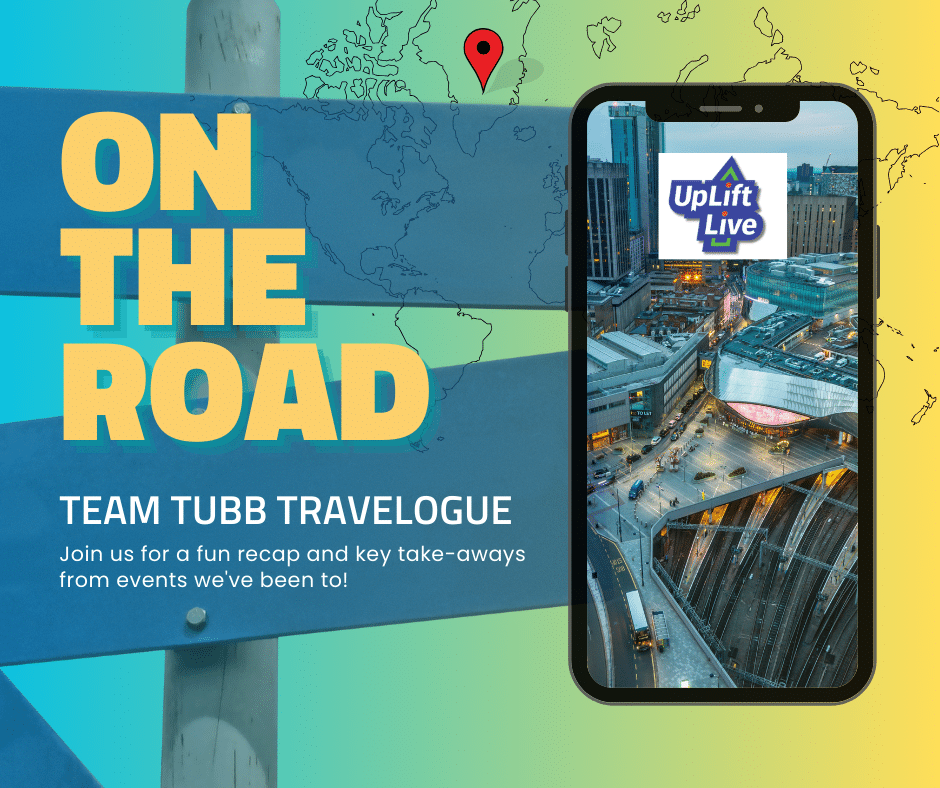
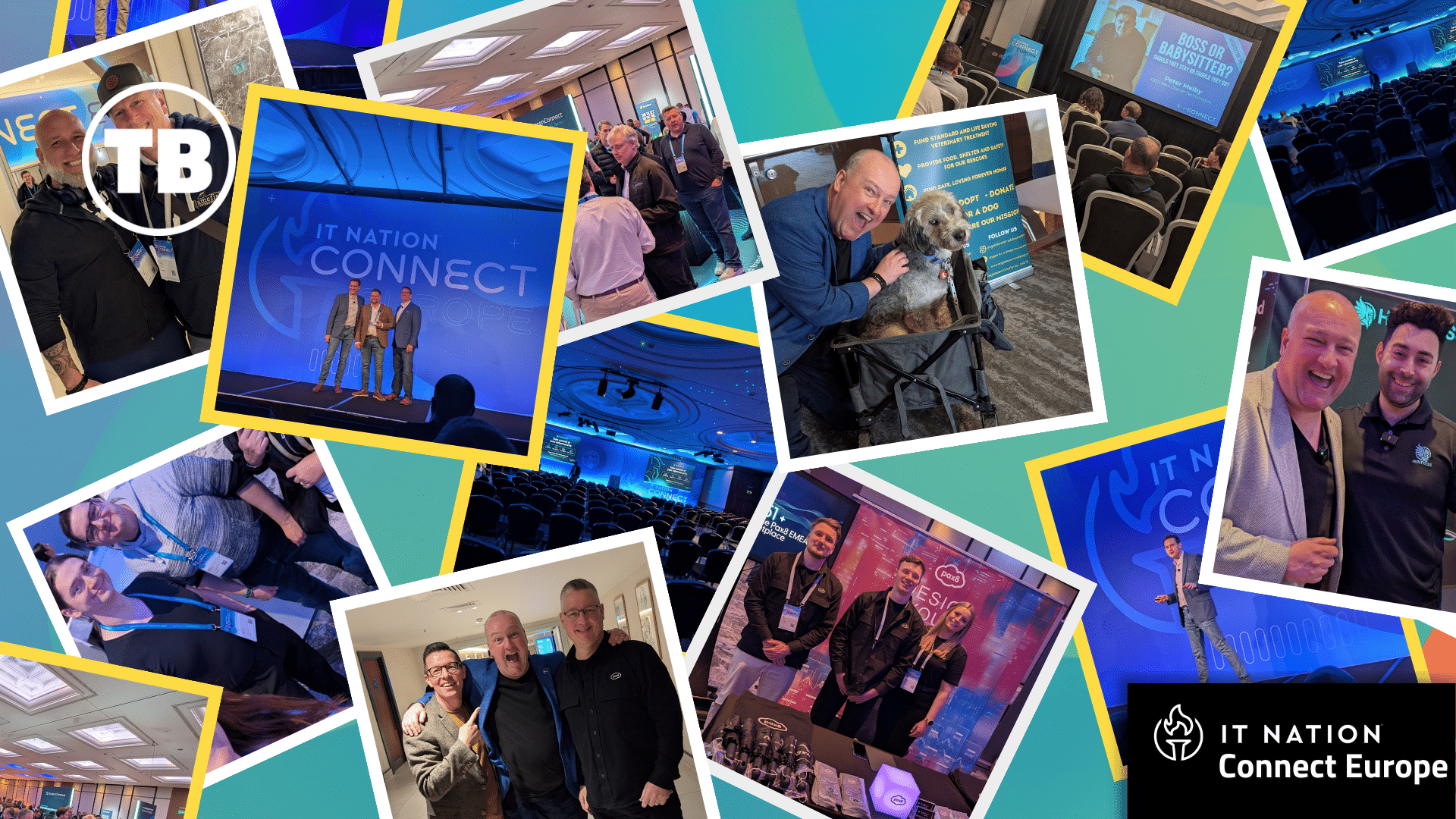

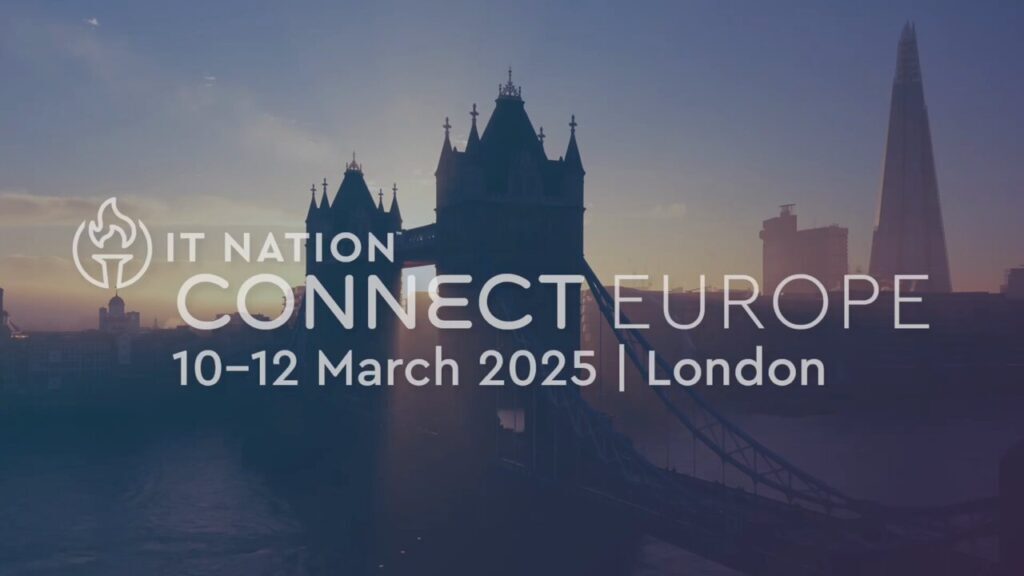
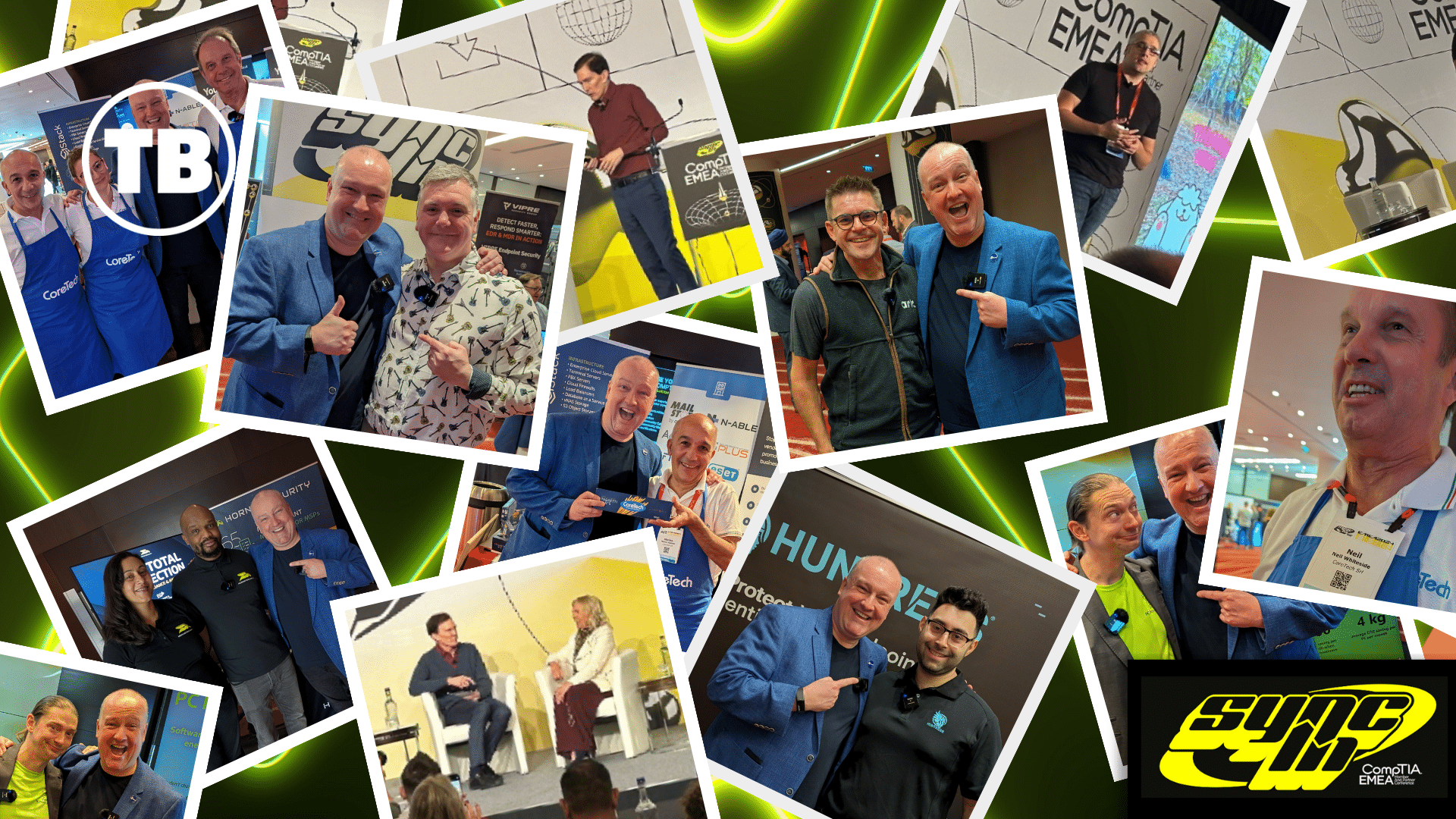

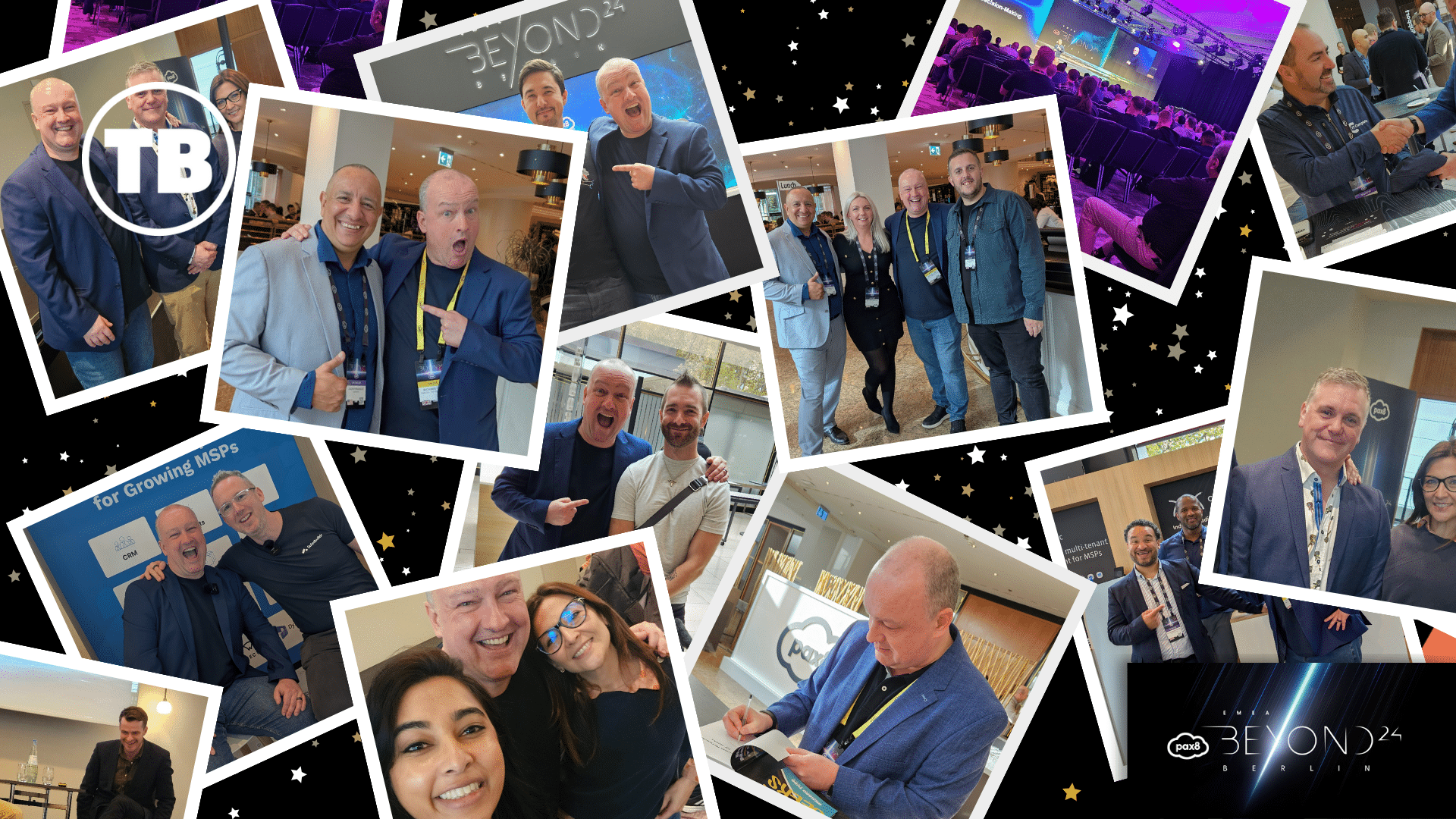
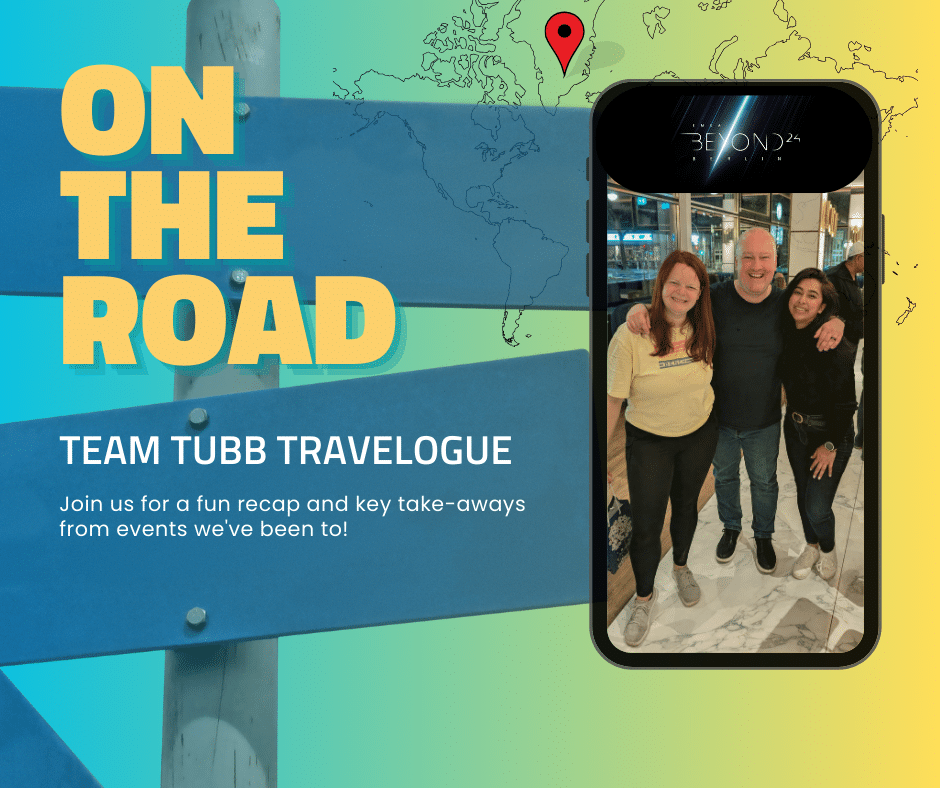

Comments